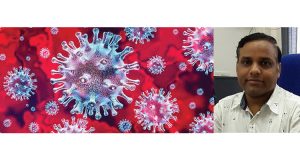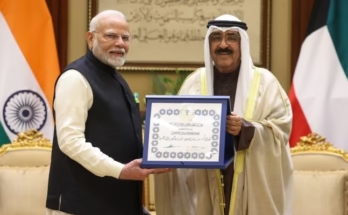
Dhanbad: IIT-ISM Scientists identified a common spice that has the potential to cure COVID-19.
A computational study conducted by the researchers from the Department of Physics, Indian Institute of Technology- Indian School of Mines (ISM), Dhanbad has identified piperine, found in black pepper that can bind and inhibit the SARS-Cov-2 virus.
This study was led by Professor Umakanta Tripathy and his team of Ph.D. Students, Janmejaya Rout and Bikash Chandra Swain, and was recently published in the “Journal of Biomolecular Structure and Dynamics” titled “In silico investigation of spice molecules as a potent inhibitor of SARS-CoV-2”.
The Covid-19 pandemic has already claimed 1 lakh lives in India and 1 million worldwide. There are concerted efforts by scientists worldwide to develop therapeutic drugs to cure those who are infected by the SARS-CoV-2 virus.
Several vaccine candidates are also under trial in different parts of the world, including in India.
“The virus uses proteins present on its surface to enter cells of our body and start causing damage,” explains Prof. Tripathy. His team started looking for natural compounds that could bind to the virus proteins and stop it from entering our cells.
The ISM team used computer-based techniques such as molecular docking and molecular dynamics (MD) simulation to hunt for potential inhibitors. “We picked up 30 molecules present in common kitchen spices and started exploring their role as a therapeutic agent,” adds Professor Tripathy.
It turns out that out of all the molecules tested, piperine, an alkaloid present in pepper and responsible for its pungency, emerged as a strong inhibitor of the virus proteins. As pepper is consumed in the diet, its antiviral properties will act as a boon as we will not have to deal with side effects seen with chemical drugs.
“Our results look very promising. Although the study is purely computational and requires testing in laboratories for further confirmation, it is still an important lead,” opines Prof. Tripathy. The molecule is now being tested experimentally in the laboratory in collaboration with Dr. Ashok Kumar Patra, Director, Biologics Development, IMGENEX India Pvt. Ltd., an Odisha based Biotech Company.
The computer-based studies are often considered as the first step before these get tested in laboratories and undergo subsequent trials if found efficient.
Professor Umakanta Tripathy is an Assistant Professor in the Department of Physics, Indian Institute of Technology (Indian School of Mines), Dhanbad. Janmejaya Rout and Bikash Chandra Swain are Ph.D. Scholars in the same department.



